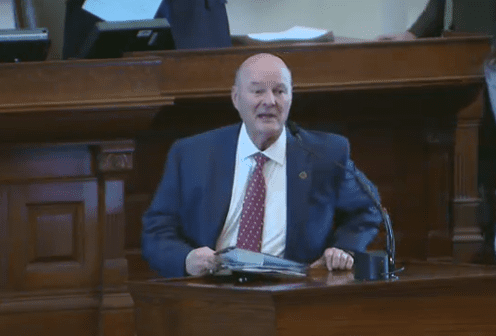The Pro-Life movement recognizes that all innocent human Life, from the moment of fertilization until natural death, is immensely valuable and deserves the utmost respect and protection. Therefore, Texas Right to Life fully vets candidates on a wide range of Life issues, from protecting preborn children from elective abortion to reforming anti-Life laws that endanger vulnerable patients in Texas hospitals, before deciding to endorse. While there are many issues on which Texas Right to Life works, one thing is clear: we must not neglect the smallest and most vulnerable Texans, those innocent human beings at the embryonic stage of development.
Currently, Texas has no legal protections for vulnerable human beings at the embryonic stages of development. Furthermore, Texas has no restrictions prohibiting taxpayer dollars from funding or supporting anti-Life, embryo-destroying research.
Whether scientifically manufactured or created by natural means, human embryos are persons worthy of the full moral and legal protection enjoyed by older citizens who have already been born. An embryo is an individual with a distinct set of DNA containing unique genetic characteristics and attributes unlike any other person and must not be neglected by society or self-proclaimed “Pro-Life” advocates. While most Pro-Lifers understand this obvious ethical premise, unfortunately, some politicians who claim to be Pro-Life do not. This is the regrettable case with Texas State Representative John Raney (R-Bryan).
During the 2015 Legislative Session, Pro-Life Hero Representative Scott Turner (R-Rockwall) demonstrated unwavering commitment to protecting all Texans by filing a budget amendment prohibiting taxpayer dollars from funding or supporting embryo-destroying scientific research. Even though Representative Turner had to wait until 3 A.M. during budget night to offer his Pro-Life amendment and combatted constant pressure from House leadership to withdraw his “controversial” language, Representative Turner persisted.
While most Pro-Lifers were rightly shocked that Texas did not already have such a legal protection for embryonic Texans, a handful of Republicans criticized the amendment, even taking to the back microphone on the House floor to publicly voice their opposition to the life-saving measure. Republican opponents questioned Representative Turner and claimed that these embryos were mere “blastocysts” and “fertilized eggs” (both of which, by the way, are defined as embryos) and that this amendment would cost Texas universities millions of dollars in lost research funding. The Republicans opposing the amendment claim to be Pro-Life, and have no excuse for their deceptive efforts on the House floor. An embryo goes through several stages of development from the moment of fertilization (when the egg is fertilized), including the blastocyst stage. However, at all stages of development that embryo is still a distinct, unique, and immensely valuable human being who deserves our protection.
With overwhelming Republican support, Representative Turner’s Pro-Life amendment passed on a 90-51 vote and was put into the House’s version of the State Budget. However, Representative John Raney and three other Republicans (Representatives Sarah Davis, JD Sheffield, and John Zerwas) chose to turn their backs on protecting these innocent human lives from murderous scientific research. Surprised by Representative Raney’s vote, Texas Right to Life lobbying staff tried to educate Representative Raney and his staff in an attempt to change his vote. Unfortunately, Representative Raney chose to follow anti-Life John Zerwas (who made Texas Right to Life’s Dishonorable Mention List).
Pro-Life leaders in the Texas Legislature will continue to fight for ALL innocent human Life, and the issue of Embryonic Stem Cell Research will return in 2017.
That is why Texas Right to Life cannot, with a clean conscience, endorse John Raney or any other politician who refuses to follow the most basic Pro-Life principle that every human being deserves our moral respect and legal protection.


